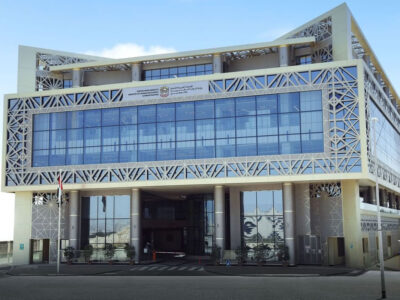Job loyalty and long-term service are things of the past, an expert told Arabian Business, as more than 90 percent of UAE workers continue to be open for new jobs.
A report by FTSE 250 recruiter PageGroup, parent company of Michael Page, found that 95 percent of UAE workers are currently open to new jobs, compared to 90 percent globally.
“Loyalty has lost its lustre and the culture of long-term service to a single company is becoming less common,” Jon Ede, Regional Director of Michael Page UAE, told Arabian Business.
“People are increasingly open to exploring new opportunities and there will be a greater challenge for employers to retain top talent.”
The survey also found that 68 percent of the 625 UAE respondents were active job seekers and looking for a new role over the next six months.
Interestingly, the pandemic seems to have permanently changed work culture across the world.
“The heightened stress and newfound freedom that people experienced during the pandemic has permanently changed work culture. Our data reveals a fundamental reset of people’s relationship with their jobs and the value they attach to them.”
“The Great Resignation, Quiet Quitting, and similar variations have dominated conversations in the post-pandemic world of work. These terms refer to a subtle but transformative shift in workplace dynamics that has occurred around the world,” said Michael Page senior managing director Middle East and Africa Pierre-Emmanuel Dupil said in a statement last week.
“We believe these changes add up to an ‘Invisible Revolution’, with significant implications for employers,” he added.

Ede believes that companies will need “a talent strategy rethink on many fronts” in order to counter this trend. But insights from the report hold some clues.
UAE workers prioritise work-life balance
Six in 10 UAE workers said they would choose mental health and work-life balance over career success, with many ranking work-life balance first for job satisfaction.
“Work-life balance is the greatest influencer of job satisfaction,” said Ede.
“Greater than pay, training and development, free lunches, gym memberships, or any other benefit. Thirty-two percent of people are also willing to reject a promotion if they believe it will have a negative effect on their wellbeing.”
This ‘Invisible Revolution’ is not a flash in the pan movement, but a seismic shift with the potential to inflict wide-reaching, global tremors in the labour market for decades to come. Many believe that the worst of the ‘Great Resignation’ is over. But the report’s findings suggest otherwise as the number of resignations is not slowing. Resignation levels doubled in 2022, reaching 29 percent – up from 15 percent in 2021.

“Seismic shifts in employee attitudes and motivations have created a new talent landscape — no age group, country, or industry is unaffected. There’s no going back to the way things were pre-pandemic; the change we see today is here to stay,” Dupil added.
“Job loyalty is now the exception, not the rule. Even generally happy employees are open to moving on to a better opportunity. The relentless resignation cycle will not be slowing down — change is the new status quo.”









